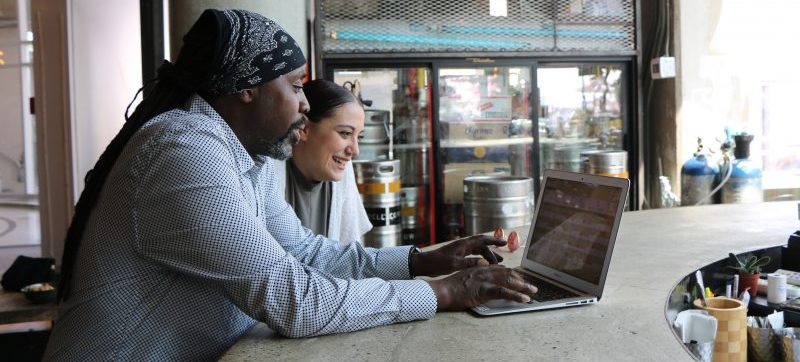Much like we are now doing nationwide, the Treasury Department’s Bureau of Engraving and Printing underwent the process of designating essential and nonessential workers several years ago. The 2013 government shutdown led the bureau to keep essential employees responsible for currency printing working, while leaving those with other duties, such as invitation printing, on hold.
Instead of furloughing them, however, the bureau decided to upskill those employees with nonessential duties so they had essential skills.
“We took the folks who had similar skills in invitation printing, and brought them over to currency printing,” said Steve Dobberwosky, who was the agency’s Director of Talent Management at the time. He is currently Senior Principal for Talent Management and Thought Leadership at Cornerstone OnDemand.
Afterward, the bureau’s engagement scores skyrocketed. Dobberwosky credits this in part to the talent flexibility and adaptability the agency was able to provide its employees.
“‘Competitive’ may be a strange word in government, because we often don’t find ourselves competing for revenue or profit like the private sector,” Dobberowsky said. “But I will tell you that [government] organizations are competing for skills and capable employees.”
How can agencies stay competitive? At the rapid pace that technology evolves, it’s critical to be prepared and identify areas where employees can grow their skillsets. During GovLoop’s online training Thursday, Dobberowsky identified five broad skills to take note of.
1. Make sense of complex systems
Being able to connect the dots on any complex system, whether that is technological or organizational, is invaluable in a seemingly increasingly complex world.
To do so, employees and organizations need to leverage feedback, both giving and receiving it, so that we can learn from each other. Telling stories is another mechanism that can simplify complicated information into digestible narratives.
2. Make yourself known
Maintaining a personal brand has become an increasingly important element in employees’ skillsets, especially in this digitally savvy, social media world. “Brands are not just for celebrities anymore. They’re for everybody,” Dobberowsky said.
Ultimately, what that means is not necessarily becoming famous, but being known for your work. What are you known for in the workplace? What are your work morals? Make sure that the projects and responsibilities you have are seen by the individuals who are impacted by them, whether that’s your direct supervisor, coworkers or those in your personal life.
3. Befriend the machines
The rate at which technology changes is, in a way, outpacing the rate at which we adopt it, Dobberowsky said. So understanding and welcoming the opportunities of assistance that technologies offer is paramount to staying competitive.
Specifically, it can be a game-changer to amplify your data intelligence. That is, being familiar with data-driven technologies like artificial intelligence (AI), robotic process automation (RPA), big data and more.
Additionally, we will likely continue to use collaboration software and digital solutions even after we return to offices. Staying digitally fluent and learning how to use these tools is not only important in emergency settings where we’re forced to work from home, but for your skills development as well.
4. Keep it going
“Your resilience is critical,” Dobberowsky said. It’s important to keep your personal and professional development top of mind. You must keep flexing your learning muscles, whether you are transitioning to a new position or planning to stay in the one you are in right now.
Being empathetic and caring plays an important role in building your professional resilience. We need to make sure we understand different styles of work and different ways of thinking if we would like to develop ourselves. It’s especially true for managers, who have to lead teams of diverse individuals.
5. Build Your Tribe
The world may be full of uncertainties, but what is clearer than ever is how important the people around us are.
Workforces are multigenerational and multicultural, so it’s important to be aware of how to approach differences in thinking and working. Be aware of your biases. Learn how to navigate and be inclusive of differences. This can positively affect any team you’re part of.
If you can navigate your team’s strengths, weaknesses, similarities, variances, and ultimately, foster trust, you can enjoy the long-term benefits in both your own development and the organization’s growth.
This online training was brought to you by:






Thank you for the informs.
[…] can diagnose development strategies for employees, how they can implement future skills, and five super skills that will help agencies meet the coming demands of the future […]
Great piece. I took notes. Thanks for posting!
Thanks, Lisa! Glad it was helpful.